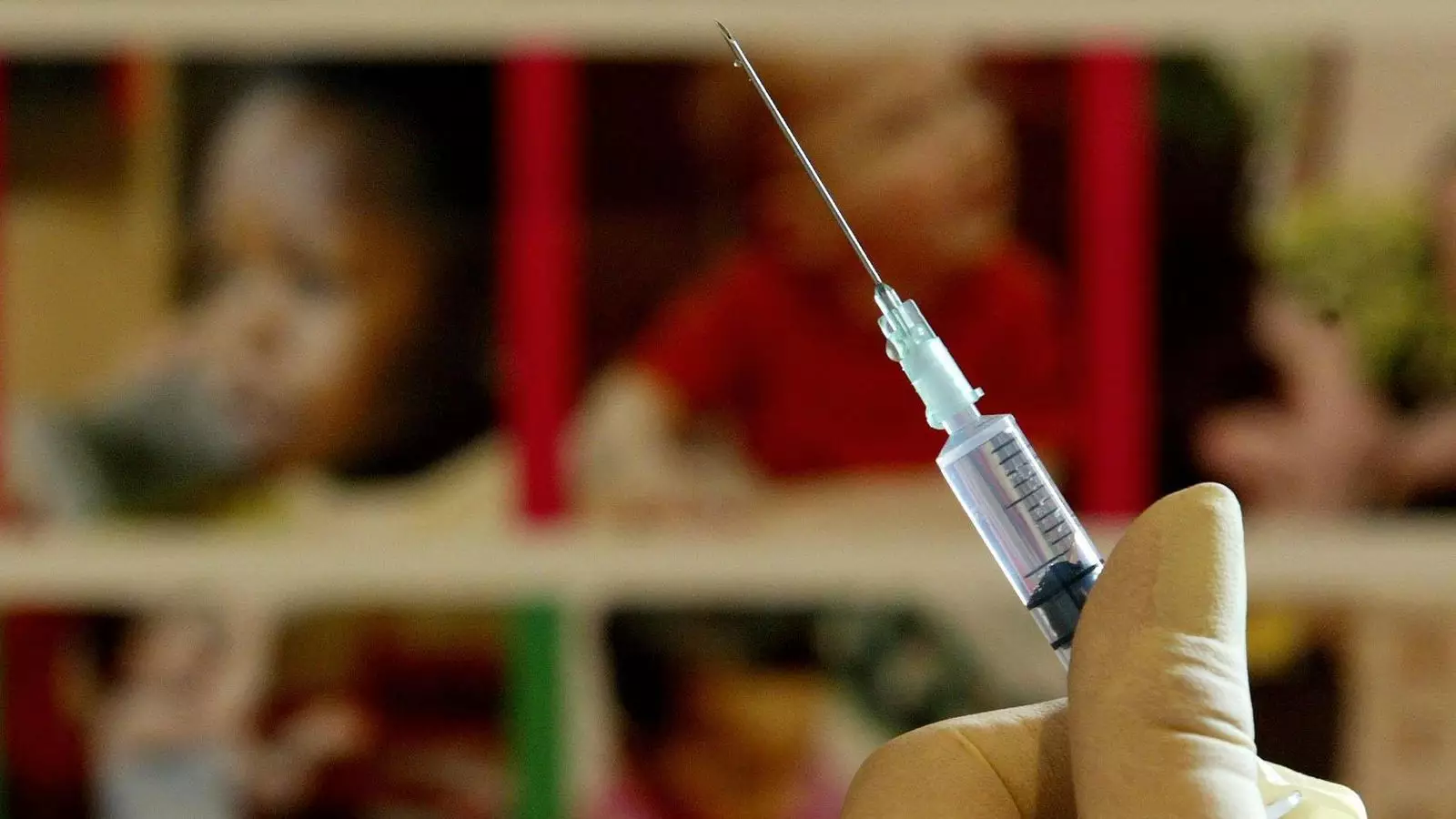In a recent study conducted by the UK Health Security Agency (UKHSA), it was revealed that there has been a concerning decline in the number of parents opting for routine childhood vaccines. This decline has been exacerbated in the past decade and has only worsened since the COVID-19 pandemic. Dr. Vanessa Saliba, a consultant epidemiologist at the UKHSA, highlighted the fact that all jabs missed the 95% World Health Organisation (WHO) uptake target in England last year, indicating a serious issue in vaccine coverage. This decline in vaccination uptake poses a significant risk to the health and well-being of children, leaving them susceptible to potentially life-threatening diseases.
The COVID-19 pandemic has played a significant role in the decline of childhood vaccination rates. Dr. Mary Ramsay, head of immunization at the UKHSA, noted that the pandemic has exacerbated existing issues with vaccine uptake. While there are some individuals who are resistant to vaccination, research has shown that overall attitudes towards vaccination are positive and improving. However, the main challenge lies in the complacency of parents, who may be too busy to prioritize their child’s vaccinations. This lack of prioritization has led to a decrease in vaccination coverage, putting children at risk of preventable diseases.
One of the most concerning repercussions of the decline in childhood vaccinations is the resurgence of diseases such as measles and polio. The UKHSA has reported a significant increase in measles cases, with over 600 cases recorded since October. These cases are predominantly clustered in Birmingham and the West Midlands, but there are now emerging clusters in London, the East Midlands, and the North West. Dr. Saliba emphasized the seriousness of measles as an infection that can result in hospitalization and long-term complications for children.
In addition to measles, polio has also resurfaced in London’s sewers after decades of absence. This alarming discovery serves as a stark reminder of the importance of maintaining high vaccination coverage to prevent the reemergence of eradicated diseases. The data released by the NHS further highlights the concerning trend of decreasing vaccination coverage among children in England, with the proportion of children receiving their first MMR jab dropping to 92.5% – the lowest level in over a decade.
It is evident that urgent action is needed to address the declining rates of childhood vaccinations in the UK. The new campaign launched by the UKHSA, featuring children advocating for vaccination, is a step in the right direction. By raising awareness about the importance of vaccines and the risks associated with not being vaccinated, the campaign aims to encourage parents to prioritize their child’s immunization. However, more efforts are needed to combat the root causes of vaccine hesitancy and ensure that all children are protected against preventable diseases.
The decline in childhood vaccinations poses a significant threat to public health, leaving children vulnerable to serious diseases. It is imperative that parents, healthcare providers, and policymakers work together to address the challenges that have led to this decline and take proactive measures to improve vaccine coverage. By prioritizing childhood vaccinations, we can protect the health and well-being of future generations and prevent the resurgence of preventable diseases.


Leave a Reply